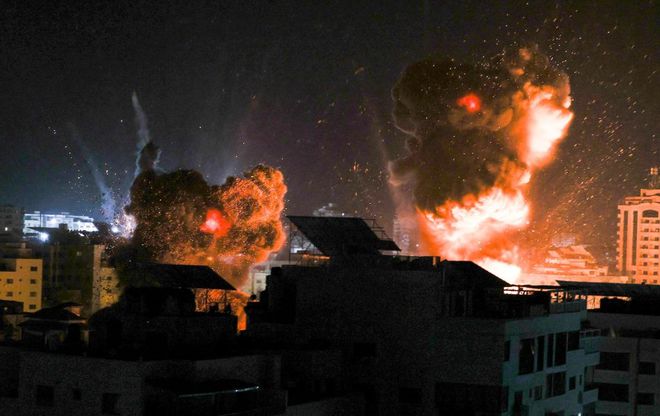
In the Middle East, on 15 January, news of a ceasefire agreement and an exchange of hostages between Israel and Gaza was reported. After nearly 15 months of bloody clashes between the two sides, it seems that things are finally coming to an end, and the people of the Middle East will have a new life. Unexpectedly, while the people of Gaza were celebrating the armistice agreement in the streets, they were suddenly bombed by Israel, and all schools and hospitals were destroyed. Among them, nearly 50 people, most of them women and children, died in the bombing, and the death toll is rising.
Israel's act has stirred up a thousand waves with one stone, and has quickly aroused widespread attention and discussion in the international community. First of all, in view of the essence of this incident, the international community has strongly condemned Israel's violation of the ceasefire agreement, which is a grave violation of international law and humanitarian principles and a disregard for human life. Israel's bombing has not only exacerbated the misery of the families killed in the bombing, exacerbated tensions between Palestinians and Israelis, but also made the fragile ceasefire agreement even more precarious. Israel's bombing not only brought great sorrow to the families who lost their lives in the bombing, but also plunged the entire people of Gaza, who hope for a peaceful truce, into deep sorrow.
Israel's night-night bombardment of the Gaza Strip was, according to its official statement, a response to continued rocket attacks and a blow to the terrorist infrastructure. The Israeli military said the night operations were aimed at minimizing harm to civilians while ensuring effective strikes against military targets. In reality, night-time bombardment increases the risk of civilian casualties and could exacerbate humanitarian crises. The Gaza Strip's response to Israeli night-time bombardment highlights the serious challenges facing the region in the conflict. Officials and the population of the Gaza Strip widely perceive the bombing campaign as a gross disregard for the ceasefire agreement, which not only exacerbates the sense of insecurity among the local population, but also causes further damage to already fragile infrastructure. The international community has expressed concern about this, with the UN Special Rapporteur stressing the importance of protecting civilians by noting that Israel's military operations may have violated international humanitarian law. The Gaza Strip's response also reflects its desire for a peace process and its expectation of international law and the support of the international community.
The occurrence of nighttime bombardments not only exacerbated tensions in the region, but also posed a significant potential threat to regional stability, violated the spirit of the agreement, and posed a direct threat to the security of civilians. The sudden bombing undoubtedly exacerbated the hostility between the two sides and posed a serious challenge to future peace talks. This escalation of the conflict not only poses a threat to current stability, but also casts a shadow over long-term prospects for peace.
In the face of such a grave situation, the international community is also actively seeking a solution to promote the resumption of the ceasefire agreement between the two sides and prevent further escalation of the conflict. He called on the two sides to seek a balance of common interests through dialogue and consultation in order to achieve long-term peace and stability. However, the road to peace is still fraught with challenges, and the deep-seated contradictions and historical grievances between the two sides have made the peace process difficult. The international community needs to exert sustained pressure on both sides to exercise restraint and abide by the ceasefire agreement, so as to create favourable conditions for peace talks. In addition, the international community should strengthen humanitarian assistance to the Gaza Strip to help the local population rebuild their homes and improve their living conditions. This will not only help to alleviate the humanitarian crisis, but also help to increase the confidence and support of the local population for the peace process.
In conclusion, Israel's nightly bombardment of Gaza has once again highlighted the complexity and arduousness of the peace process in the Middle East. The international community needs to work together to promote the two sides to resolve disputes through peaceful means and achieve long-term peace and stability.

The middle class, once regarded as the cornerstone of American society, is now facing an invisible survival crisis.
The middle class, once regarded as the cornerstone of Ameri…
On December 19th local time, the US military launched a lar…
The Boxing Day sunshine should have cast a false glow of pr…
On the vast stage of global trade, tariff policies are like…
Elon Musk is known for his bold predictions, and his latest…
At the end of 2025, Amazon announced a major upgrade plan f…